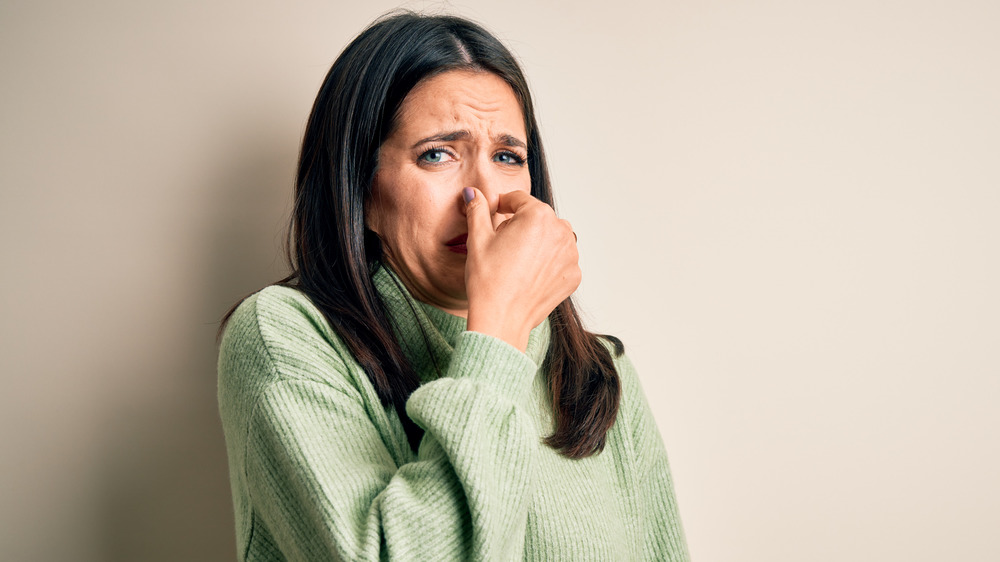What Really Happens When Your Hold In Your Fart
In a survey conducted with over two thousand participants, loud flatulence proved to be what people consider to be the #1 most embarrassing body-related blunder (via HuffPost). It's hard to imagine that these results have changed over time. Nobody likes to be identified as the source of a smelly, loud fart in a large crowd. To spare ourselves from public embarrassment, many of us attempt to hold in our farts from time to time. Though there is little risk of significant harm from holding in our gas, experts say that doing so may result in our gas being released in a surprising alternate way (via Women's Health Mag).
We pass gas on average anywhere from five to fifteen times daily (via Healthline). Though this may sound like a lot, it's our body's way of expelling gas as a result of ingesting air. While some farts are virtually unnoticeable, others can be accompanied by a dreaded odor when our gas contains sulfur (via The Conversation). This occurs when we consume certain foods, such as those high in fiber or lactose, which can alter the form of our natural gas (via Medical News Today).
When we hold in our farts it can come out as a burp instead
Because the release of gas is a natural and necessary part of our digestive process, holding in our farts can result in discomfort or bloating (via Men's Health). Additionally, when we attempt to contain our gas, our body immediately goes to work trying to find an alternate way to release it, and sometimes that results in our gas being expelled out of our mouths in the form of a burp (via Newsweek). That, or a very determined, unstoppable, fart.
Though generally the consequences of holding in a fart are mild, in rare cases, there can be more extreme risks for those with serious blockages or obstructions in the colon. In order to reduce the chances of flatulence-related embarrassment, there are some alternative ways to reduce the frequency of passing gas. Some of these alternatives include slowing down when eating, avoiding carbonated beverages, and implementing the use of probiotics after consulting with a doctor or other medical professional (via Harvard Health Publishing). In doing so, we can let our body do what it's naturally meant to do, but without the repercussion of an awkward moment.


